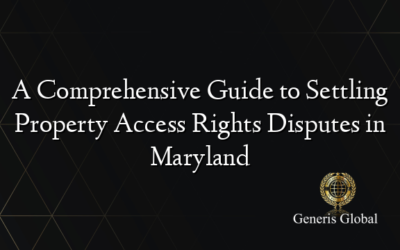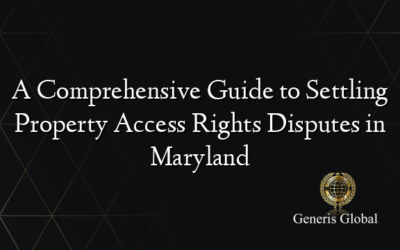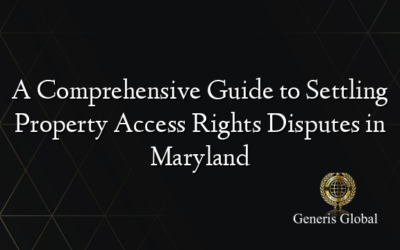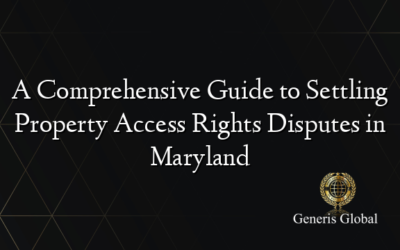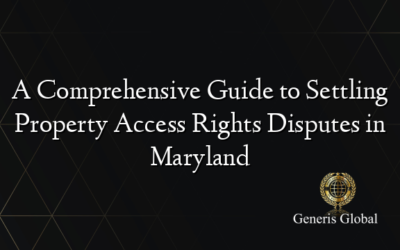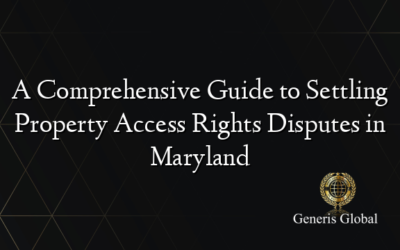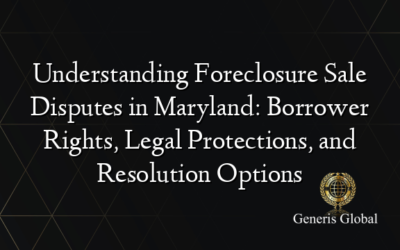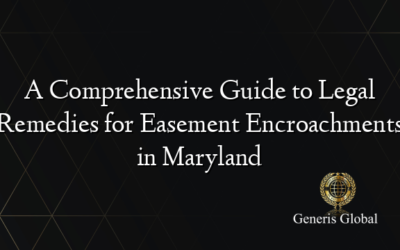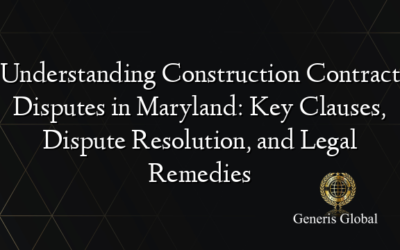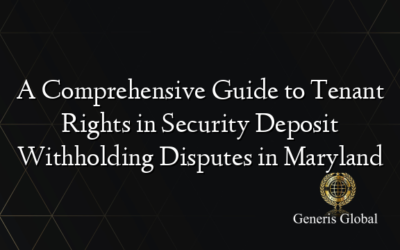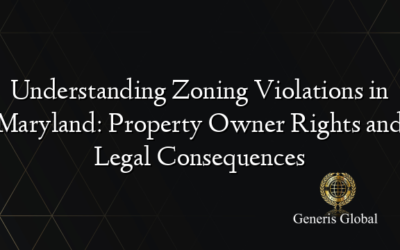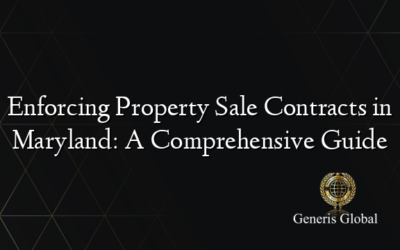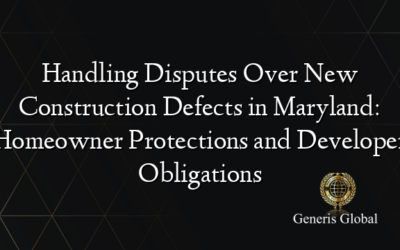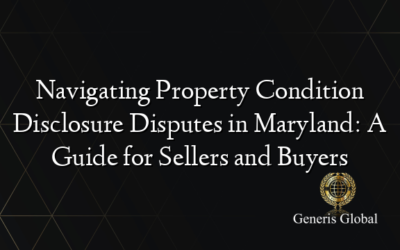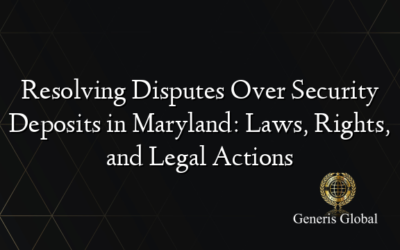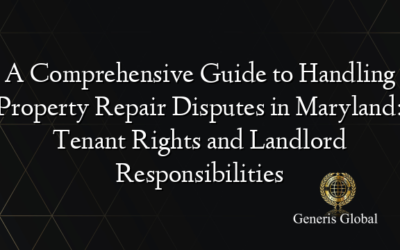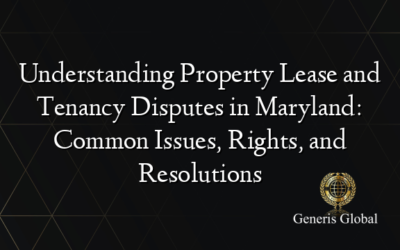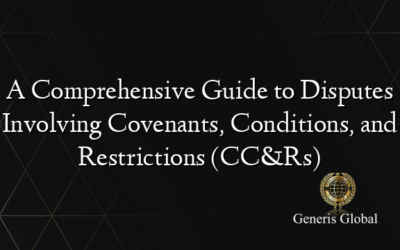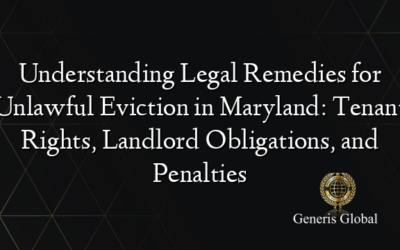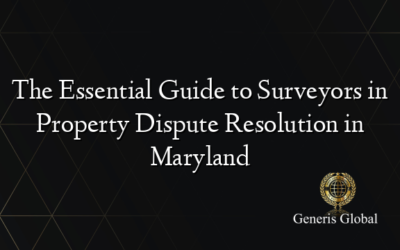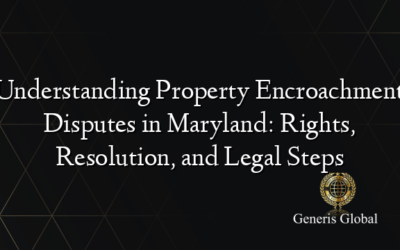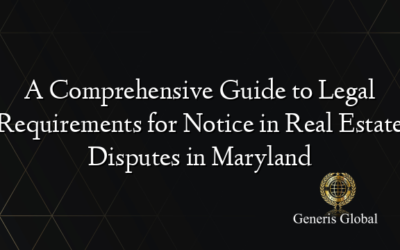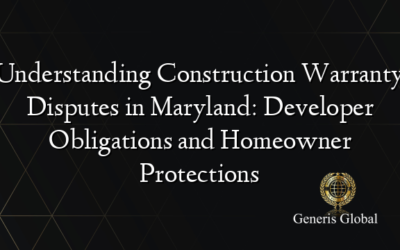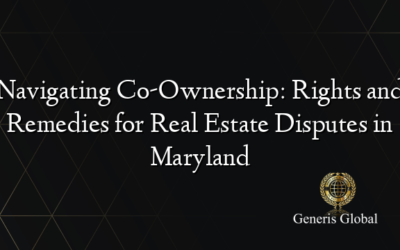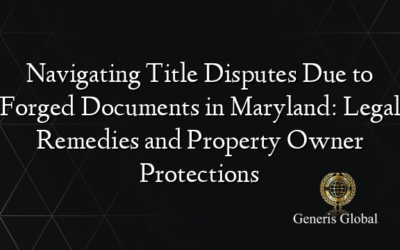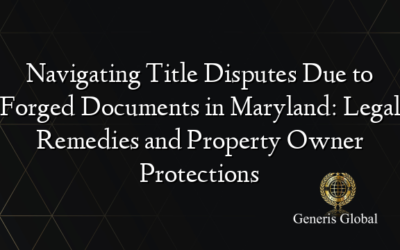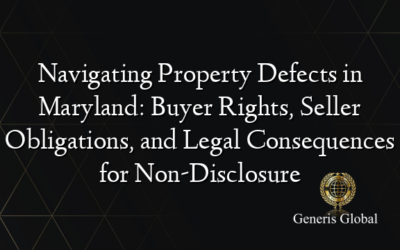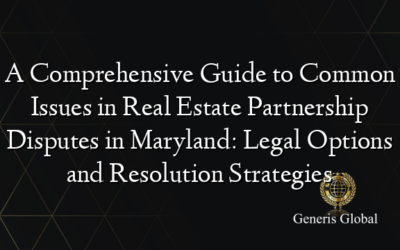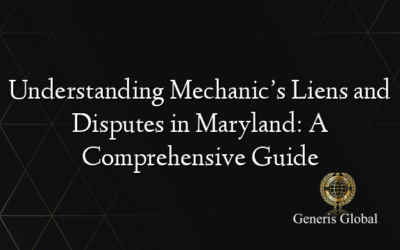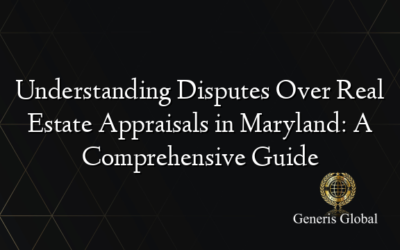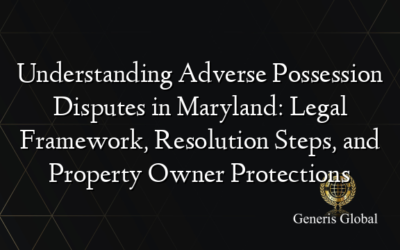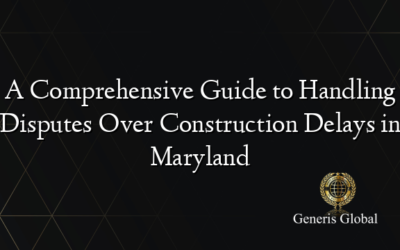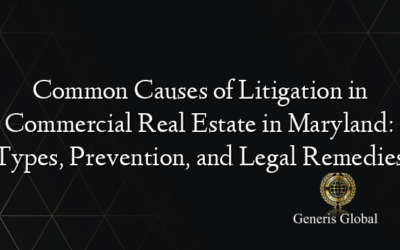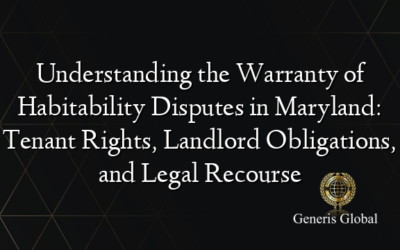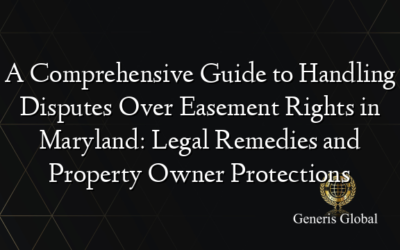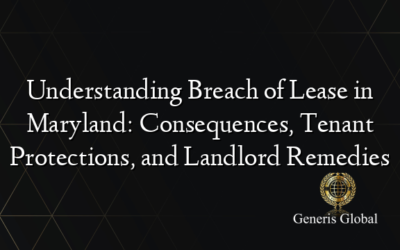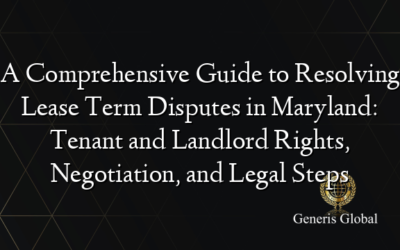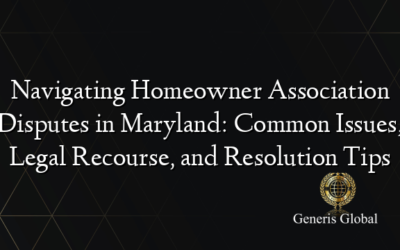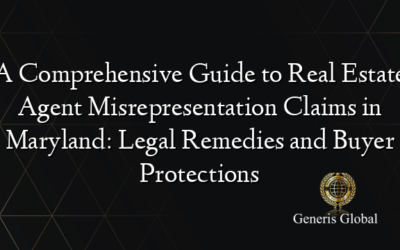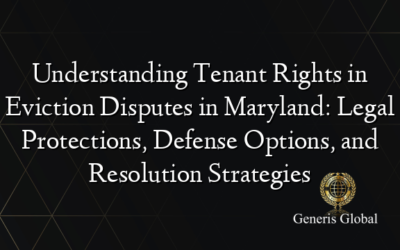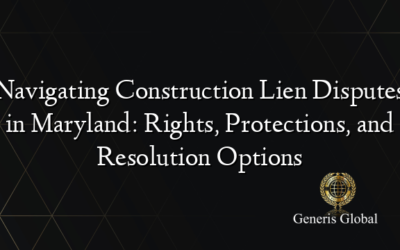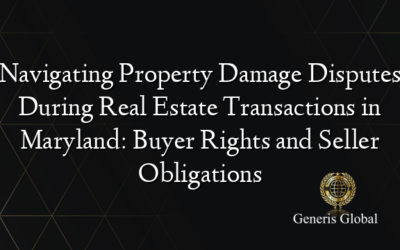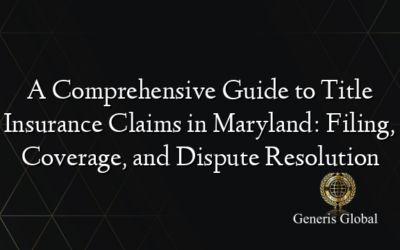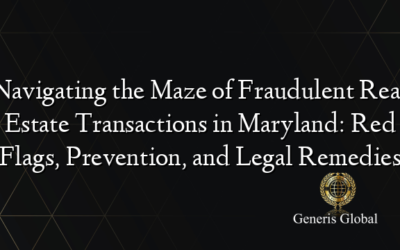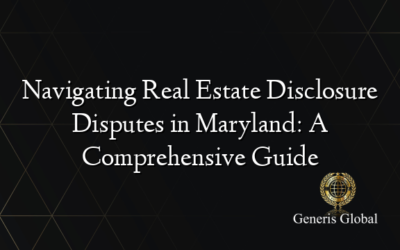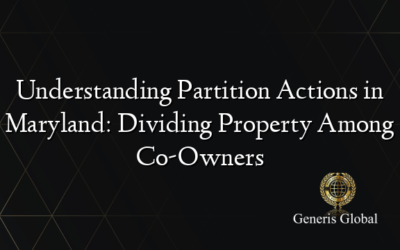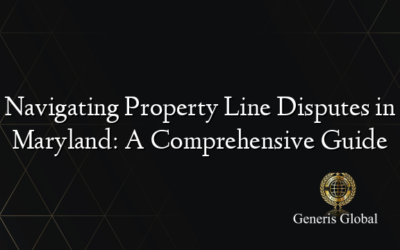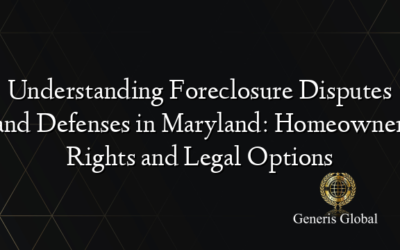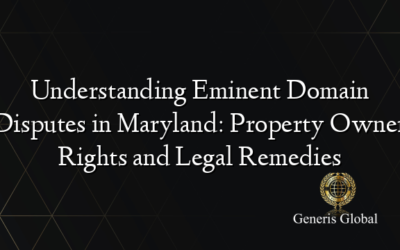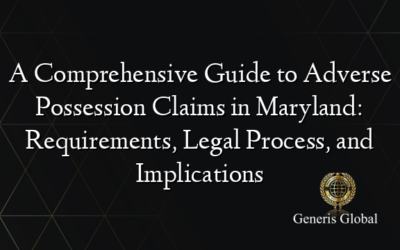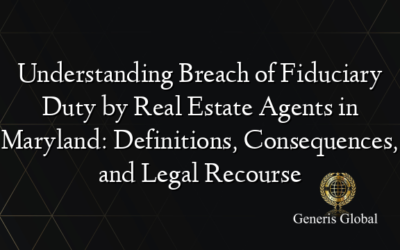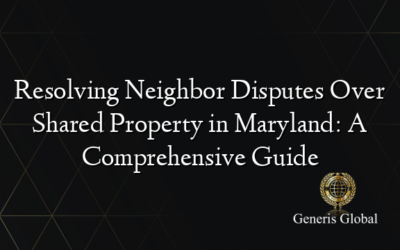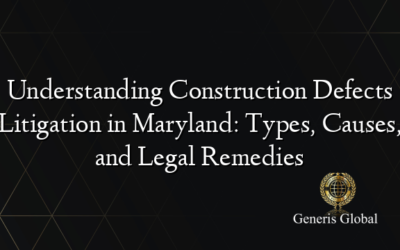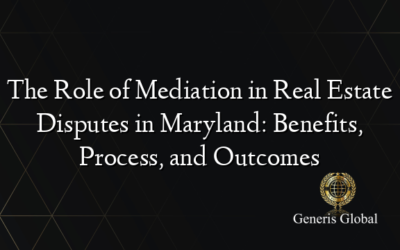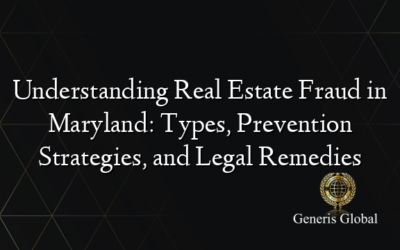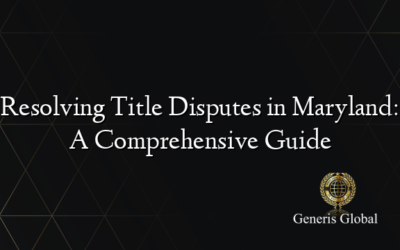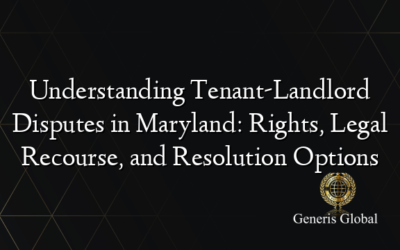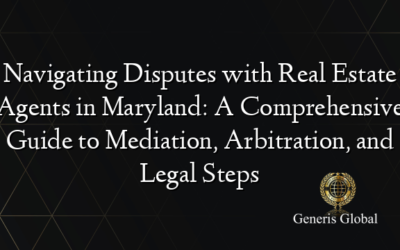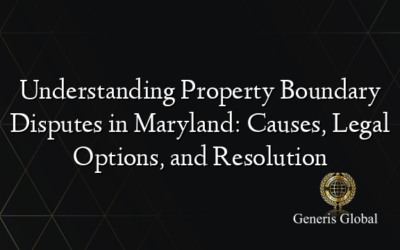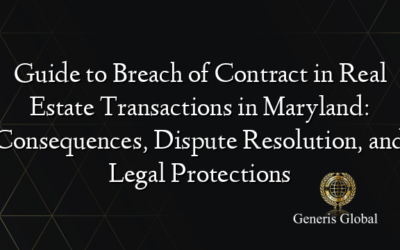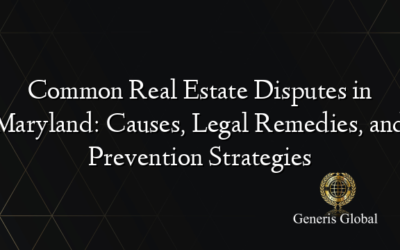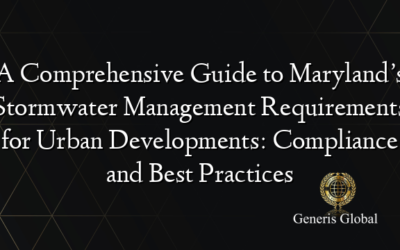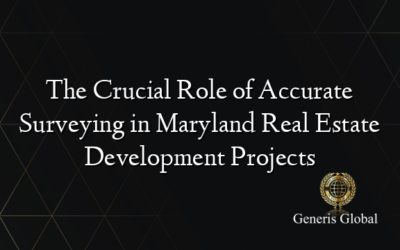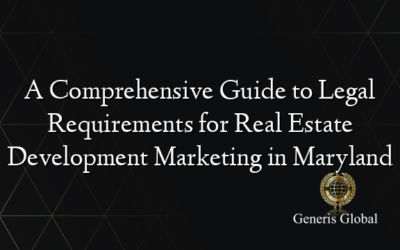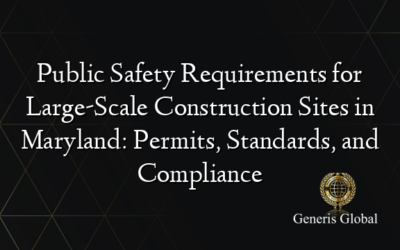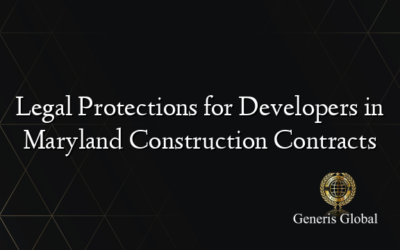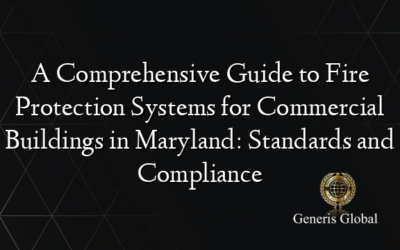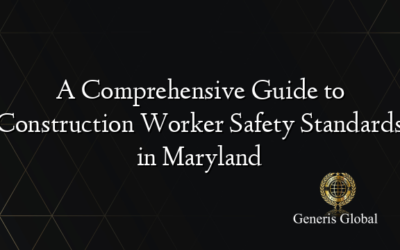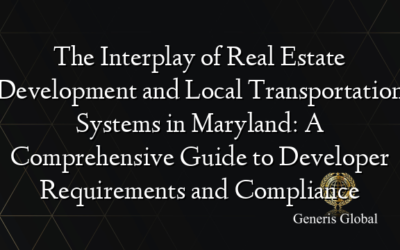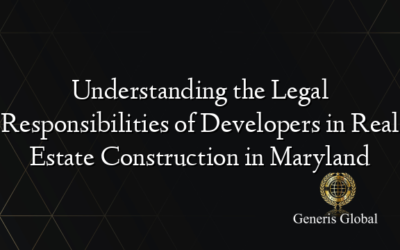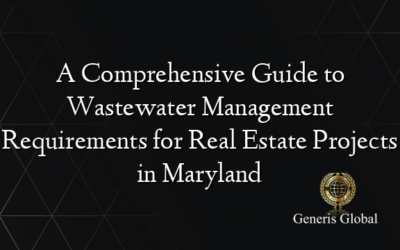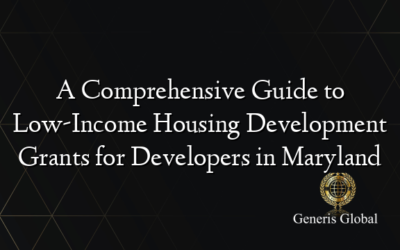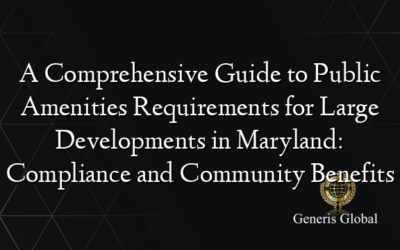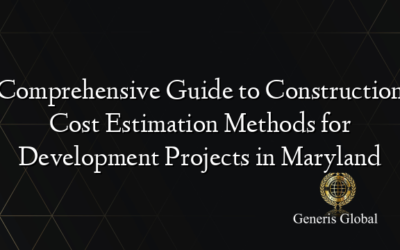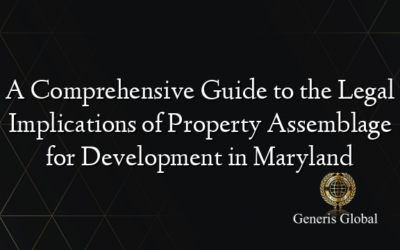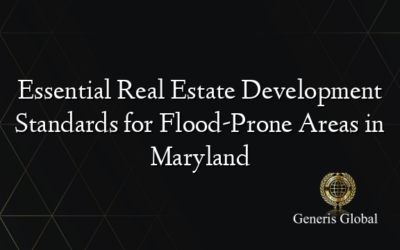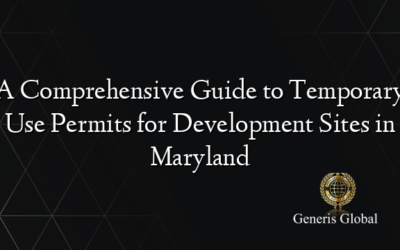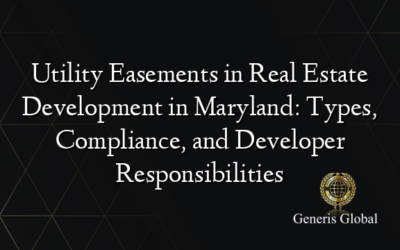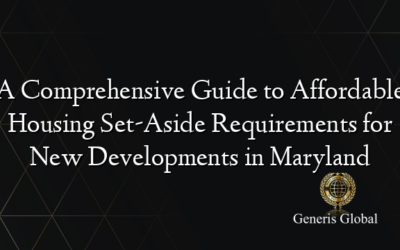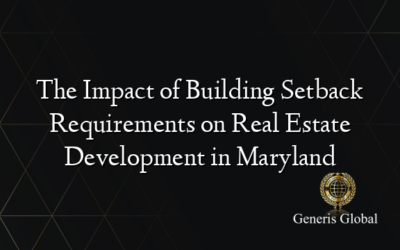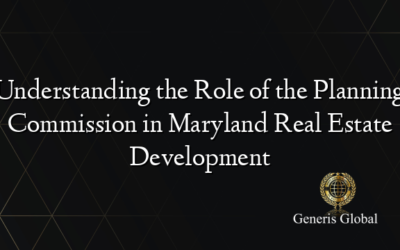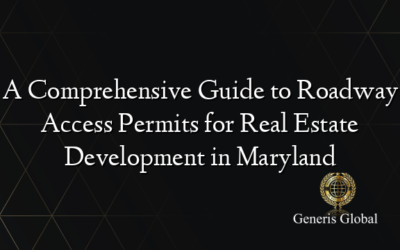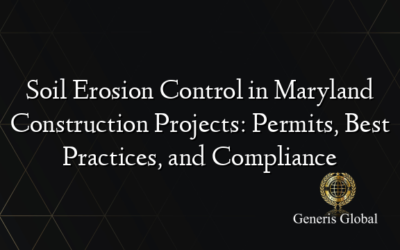Our Vision
We believe the law exists to protect and empower everyone. Yet, costly fees and complex procedures often put legal help out of reach. We are here to change that.
By making legal services affordable, simple, and accessible, we have built a platform trusted by millions. Every day, we dedicate our resources to making legal assistance more efficient, so our clients can focus on what matters—taking care of their families and growing their businesses.
Our Mission
At Generis Global, our mission is to simplify access to justice and empower individuals and businesses by breaking down the barriers of cost and complexity in legal services.
We aim to provide innovative solutions that deliver high-quality legal support, enabling our clients to navigate legal challenges with confidence and ease. Whether it’s securing intellectual property, starting a business, or resolving disputes, we are here to ensure that legal expertise is available to all who need it.
Our Commitment
We are committed to transforming the practice of law into a more accessible, inclusive, and technology-driven experience.
Through collaboration, innovation, and relentless pursuit of excellence, we provide solutions that not only address today’s challenges but also anticipate tomorrow’s needs. At Generis Global, our clients are more than just cases—they are partners in building a future where legal services empower growth, protection, and success for all.
How We Work
Global Legal Expertise
Generis Global unites a vast network of independent attorneys and legal professionals worldwide, enabling us to handle any legal challenge. Our global presence ensures that clients receive both localized insights and internationally aligned strategies, no matter their jurisdiction or area of need.
Technology-Driven Solutions
We leverage state-of-the-art technologies to streamline the legal process, offering features like digital document management, e-signatures, and AI-powered legal analysis. These tools not only improve efficiency but also reduce the complexity of legal workflows, ensuring a seamless client experience.
Customizable Legal Teams
Whether you need a one-time consult, a specialist on retainer, or a complete freelance legal department, Generis Global allows you to build a team that perfectly matches your requirements. This flexible model ensures cost-effectiveness and scalability for businesses of all sizes.
End-to-End Legal Integration
Generis Global provides holistic legal solutions, seamlessly integrating legal strategy into your business operations. From incorporation to intellectual property protection and dispute resolution, we ensure every legal aspect is covered, allowing clients to focus on innovation and growth without legal concerns slowing them down.
Strategic Partnerships
Our collaborative network of strategic partners enables Generis Global to deliver comprehensive solutions across industries and jurisdictions. These partnerships allow us to expand rapidly, share valuable resources, and provide unmatched legal support to our clients.
Agile and Scalable Operations
Our approach is built on adaptability. Whether your project grows in scope or requires a quick pivot, Generis Global’s agile operations ensure we deliver solutions that scale with your needs. This flexibility allows us to handle everything from routine legal tasks to complex, multi-jurisdictional cases with efficiency and ease.
Client-First Philosophy
At Generis Global, every decision we make is rooted in our clients’ best interests. By offering personalized legal solutions, responsive support, and a commitment to excellence, we ensure that our clients achieve their goals while receiving a superior legal experience.
- Customization 100%
- Ligtigation support 100%
- Swift drafting 100%
- Client Satisfaction 100%
- Flexibility 100%
- Responsiveness 100%
- Scalability 100%
- Coherence 100%
- Creativity 100%
- Reliability 100%
High Tech
At Generis Global, we don’t just keep up with technology—we lead the way. Our commitment to cutting-edge innovation ensures that our clients benefit from state-of-the-art tools like AI-driven analysis, digital workflows, and secure online platforms. We make navigating the legal landscape effortless, delivering solutions that are efficient, modern, and reliable.
Forward Thinking
We are driven by the belief that progress in law means progress for society. Generis Global envisions a future where legal services are universally accessible and deeply impactful. By pushing boundaries, embracing innovation, and anticipating client needs, we are shaping a better tomorrow for individuals, families, and businesses worldwide.
Problem Solvers
At Generis Global, we thrive on challenges. No matter the complexity of the issue, we approach every problem with determination, creativity, and expertise. Our team excels at turning obstacles into opportunities, delivering tailored solutions that drive results. With an unwavering commitment to perseverance and innovation, we ensure that every problem finds its answer.
Customer Support
Your success is our priority. Our global support network ensures you have access to expert guidance whenever you need it. Whether it’s answering questions, resolving issues, or providing ongoing assistance, Generis Global is always here to help you win, because when you succeed, so do we.
We believe that true transformation is born from the fusion of groundbreaking innovation and a clear, forward-thinking vision. Combined with unwavering dedication and sincerity, this formula drives us to revolutionize the legal industry every single day.
We are Generis Global. Revolutionizing the way the world approaches law.
Knowledge Base
Learn, share and explore.
A Comprehensive Guide to Settling Property Access Rights Disputes in Maryland
Understanding Property Access RightsProperty access rights are fundamental legal principles that govern the ability of individuals to enter and use another person's property. These rights play a crucial role in property law and often create a framework within which...
A Comprehensive Guide to Settling Property Access Rights Disputes in Maryland
Understanding Property Access RightsProperty access rights are fundamental legal principles that govern the ability of individuals to enter and use another person's property. These rights play a crucial role in property law and often create a framework within which...
A Comprehensive Guide to Settling Property Access Rights Disputes in Maryland
Understanding Property Access RightsProperty access rights are fundamental legal principles that govern the ability of individuals to enter and use another person's property. These rights play a crucial role in property law and often create a framework within which...
A Comprehensive Guide to Settling Property Access Rights Disputes in Maryland
Understanding Property Access RightsProperty access rights are fundamental legal principles that govern the ability of individuals to enter and use another person's property. These rights play a crucial role in property law and often create a framework within which...
A Comprehensive Guide to Settling Property Access Rights Disputes in Maryland
Understanding Property Access RightsProperty access rights are fundamental legal principles that govern the ability of individuals to enter and use another person's property. These rights play a crucial role in property law and often create a framework within which...
A Comprehensive Guide to Settling Property Access Rights Disputes in Maryland
Understanding Property Access RightsProperty access rights are fundamental legal principles that govern the ability of individuals to enter and use another person's property. These rights play a crucial role in property law and often create a framework within which...
Understanding Foreclosure Sale Disputes in Maryland: Borrower Rights, Legal Protections, and Resolution Options
Introduction to Foreclosure Sale Disputes in MarylandForeclosure sale disputes are legal conflicts that occur when a property facing foreclosure is sold under judicial or non-judicial processes. In Maryland, these disputes arise primarily between borrowers, lenders,...
A Comprehensive Guide to Legal Remedies for Easement Encroachments in Maryland
Understanding Easements and EncroachmentsEasements are legal rights granted to a person or entity to use another person's land for a specified purpose. In the realm of property law in Maryland, easements can be categorized into three primary types: express, implied,...
Understanding Construction Contract Disputes in Maryland: Key Clauses, Dispute Resolution, and Legal Remedies
Introduction to Construction Contract DisputesIn Maryland, construction contract disputes are a prevalent issue that can significantly impact contractors, subcontractors, and property owners. Understanding these disputes is crucial for all parties involved in the...
A Comprehensive Guide to Tenant Rights in Security Deposit Withholding Disputes in Maryland
Understanding Security Deposits in MarylandSecurity deposits play a crucial role in rental agreements, serving as a financial safeguard for landlords against potential damages or unpaid rent. In Maryland, a security deposit is typically required from tenants prior to...
Understanding Zoning Violations in Maryland: Property Owner Rights and Legal Consequences
Introduction to Zoning ViolationsZoning violations represent a critical aspect of property law, particularly within the framework of urban planning and community development. These violations occur when land use does not conform to established zoning regulations,...
Enforcing Property Sale Contracts in Maryland: A Comprehensive Guide
Introduction to Property Sale Contracts in MarylandProperty sale contracts serve as the foundation for real estate transactions in Maryland. These legally binding documents not only outline the terms and conditions under which a property will be sold but also protect...
Handling Disputes Over New Construction Defects in Maryland: Homeowner Protections and Developer Obligations
Introduction to Construction DefectsConstruction defects refer to flaws or deficiencies in a newly built structure that can compromise its integrity, safety, or value. These defects may arise from various sources, including inadequate design, poor workmanship,...
Navigating Home Inspection Disputes in Maryland: Buyer and Seller Rights and Resolution Options
Introduction to Home Inspection DisputesIn Maryland, home inspections serve as a vital component of real estate transactions, providing both buyers and sellers with essential information regarding the property's condition. A thorough inspection typically uncovers...
Navigating Property Condition Disclosure Disputes in Maryland: A Guide for Sellers and Buyers
Introduction to Property Condition DisclosuresIn the realm of real estate transactions, property condition disclosures hold a pivotal place, particularly in Maryland. Defined as formal statements made by sellers regarding the state of their property, these disclosures...
Resolving Disputes Over Security Deposits in Maryland: Laws, Rights, and Legal Actions
Introduction to Security Deposits in MarylandSecurity deposits play a pivotal role in the landlord-tenant relationship in Maryland. Defined as a sum of money held by a landlord to cover potential damages or unpaid rent, security deposits serve several essential...
A Comprehensive Guide to Handling Property Repair Disputes in Maryland: Tenant Rights and Landlord Responsibilities
Introduction to Property Repair DisputesProperty repair disputes frequently arise between tenants and landlords in Maryland, often creating a challenging dynamic for both parties. These disputes can stem from various issues, including inadequate repairs, delays in...
Understanding Property Lease and Tenancy Disputes in Maryland: Common Issues, Rights, and Resolutions
Introduction to Lease and Tenancy DisputesProperty leases and tenancies form the bedrock of the landlord-tenant relationship in Maryland, serving as binding agreements that delineate the responsibilities and rights of both parties. A lease typically outlines the terms...
The Impact of Bankruptcy on Real Estate Ownership and Disputes in Maryland
Understanding Bankruptcy BasicsBankruptcy is a legal process that provides relief to individuals or businesses unable to meet their financial obligations. The two most common types of bankruptcy for individuals are Chapter 7 and Chapter 13. Chapter 7 bankruptcy, often...
A Comprehensive Guide to Disputes Involving Covenants, Conditions, and Restrictions (CC&Rs)
Introduction to Covenants, Conditions, and Restrictions (CC&Rs)Covenants, Conditions, and Restrictions (CC&Rs) are vital components of real estate, particularly in the context of homeowners associations (HOAs). They serve as legally binding agreements that...
Understanding Legal Remedies for Unlawful Eviction in Maryland: Tenant Rights, Landlord Obligations, and Penalties
Introduction to Unlawful EvictionUnlawful eviction refers to the process by which a tenant is removed from their rental property without following the appropriate legal procedures defined by law. In Maryland, this practice is explicitly prohibited, safeguarding tenant...
The Essential Guide to Surveyors in Property Dispute Resolution in Maryland
Introduction to Property DisputesProperty disputes are conflicts that arise over the ownership, use, or boundaries of real estate. In Maryland, these disputes can manifest in various forms, including boundary disagreements, title issues, trespassing, and disputes...
Understanding Property Encroachment Disputes in Maryland: Rights, Resolution, and Legal Steps
Introduction to Property EncroachmentProperty encroachment is a legal term that refers to a situation where a structure or object extends over the boundary line of a property, infringing upon an adjacent property owner’s rights. This issue is particularly significant...
A Comprehensive Guide to Legal Requirements for Notice in Real Estate Disputes in Maryland
Introduction to Notice in Real Estate DisputesNotice, in the context of real estate disputes, refers to the formal notification provided to involved parties regarding legal actions or proceedings related to real estate transactions. This concept is pivotal in ensuring...
Understanding Construction Warranty Disputes in Maryland: Developer Obligations and Homeowner Protections
Introduction to Construction WarrantiesConstruction warranties serve as a vital component in the construction industry, acting as legal assurances provided by developers or contractors to homeowners regarding the quality and functionality of their work. Essentially, a...
Navigating Co-Ownership: Rights and Remedies for Real Estate Disputes in Maryland
Understanding Co-Ownership in Maryland Real EstateCo-ownership in real estate refers to a situation where two or more individuals share ownership of a property. In Maryland, various types of co-ownership arrangements are recognized, including joint tenancy, tenancy in...
Navigating Title Disputes Due to Forged Documents in Maryland: Legal Remedies and Property Owner Protections
Introduction to Title Disputes in MarylandTitle disputes in Maryland present significant challenges to property owners, especially when fraudulent activities such as forged documents are involved. A title dispute arises when there are conflicting claims regarding...
Navigating Title Disputes Due to Forged Documents in Maryland: Legal Remedies and Property Owner Protections
Introduction to Title Disputes in MarylandTitle disputes in Maryland present significant challenges to property owners, especially when fraudulent activities such as forged documents are involved. A title dispute arises when there are conflicting claims regarding...
A Comprehensive Guide to Disputes Over Earnest Money Deposits in Maryland
Introduction to Earnest Money DepositsIn the realm of real estate transactions in Maryland, the concept of earnest money deposits plays a vital role in facilitating the buying and selling process. An earnest money deposit is essentially a sum of money provided by the...
Navigating Property Defects in Maryland: Buyer Rights, Seller Obligations, and Legal Consequences for Non-Disclosure
Introduction to Property Defects and DisclosureProperty defects refer to inherent flaws or issues within a property that can affect its value, safety, or usability. These defects can range from minor cosmetic concerns to significant structural problems, such as leaks,...
A Comprehensive Guide to Common Issues in Real Estate Partnership Disputes in Maryland: Legal Options and Resolution Strategies
Understanding Real Estate PartnershipsReal estate partnerships constitute a collaborative agreement between two or more individuals or entities who come together for the purpose of investing in real estate. Generally, these partnerships are formed to pool resources,...
Understanding Mechanic’s Liens and Disputes in Maryland: A Comprehensive Guide
Introduction to Mechanic’s Liens in MarylandIn Maryland, a mechanic’s lien serves as a powerful legal instrument designed to ensure that contractors, subcontractors, and suppliers are compensated for their labor and materials utilized in enhancing a property. This...
Understanding Disputes Over Real Estate Appraisals in Maryland: A Comprehensive Guide
Introduction to Real Estate AppraisalsReal estate appraisals are a critical component in the buying, selling, and financing of properties. An appraisal is an unbiased assessment of a property's value, often conducted by a licensed professional known as an appraiser....
Understanding Adverse Possession Disputes in Maryland: Legal Framework, Resolution Steps, and Property Owner Protections
What is Adverse Possession?Adverse possession is a legal doctrine that permits an individual to claim ownership of land under specific conditions, even in the absence of a formal title. This concept can be traced back to English common law and has been embedded in...
A Comprehensive Guide to Handling Disputes Over Construction Delays in Maryland
Understanding Construction DelaysConstruction delays can be defined as interruptions in the anticipated progress of a construction project, which affect the overall timeline. Such delays can arise from various factors and are often categorized into three primary...
Common Causes of Litigation in Commercial Real Estate in Maryland: Types, Prevention, and Legal Remedies
Introduction to Commercial Real Estate LitigationCommercial real estate litigation refers to legal disputes arising from activities related to commercial properties, encompassing various issues such as leases, sales, financing, and development. In Maryland, the...
The Role of Real Estate Attorneys in Resolving Property Disputes in Maryland
Introduction to Real Estate DisputesReal estate disputes encompass a range of issues related to property ownership, use, and management. In Maryland, common types of property disputes include boundary disputes, landlord-tenant conflicts, and title disputes. Each of...
Understanding Nuisance Claims in Maryland Real Estate Disputes: Types, Resolution, and Legal Actions
Introduction to Nuisance ClaimsNuisance claims are an essential aspect of real estate disputes, particularly within the context of Maryland property law. A nuisance is typically defined as an action or condition that significantly interferes with the use and enjoyment...
Understanding the Warranty of Habitability Disputes in Maryland: Tenant Rights, Landlord Obligations, and Legal Recourse
Introduction to Warranty of HabitabilityThe warranty of habitability is a legal doctrine that ensures residential properties are maintained in a condition fit for human habitation. This implies that landlords are obligated to provide and uphold certain basic standards...
A Comprehensive Guide to Handling Disputes Over Easement Rights in Maryland: Legal Remedies and Property Owner Protections
Understanding Easement RightsEasement rights are a crucial aspect of property law that provide individuals with certain privileges concerning the use of another person's land. These rights are typically established for the benefit of one parcel of land (known as the...
Understanding Breach of Lease in Maryland: Consequences, Tenant Protections, and Landlord Remedies
What Constitutes a Breach of Lease?In Maryland, a breach of lease occurs when one party fails to adhere to the terms outlined in the lease agreement. This legally binding document delineates rights and responsibilities for both landlords and tenants. Herein, we will...
A Comprehensive Guide to Resolving Lease Term Disputes in Maryland: Tenant and Landlord Rights, Negotiation, and Legal Steps
Understanding Lease Agreements in Maryland In Maryland, a lease agreement serves as a legally binding contract between a landlord and a tenant, outlining the terms of the rental arrangement. To establish a valid lease, it must contain certain essential elements,...
Navigating Homeowner Association Disputes in Maryland: Common Issues, Legal Recourse, and Resolution Tips
Understanding Homeowner Associations (HOAs)Homeowner Associations, commonly referred to as HOAs, are organizations within a residential community that create and enforce rules and regulations governing the properties and residents of that community. In Maryland, these...
A Comprehensive Guide to Real Estate Agent Misrepresentation Claims in Maryland: Legal Remedies and Buyer Protections
Understanding Misrepresentation in Real EstateMisrepresentation in real estate transactions refers to the act of providing false or misleading information by an agent that influences a buyer’s decision. It is crucial to recognize the different types of...
Understanding Tenant Rights in Eviction Disputes in Maryland: Legal Protections, Defense Options, and Resolution Strategies
Introduction to Tenant Rights in MarylandIn Maryland, tenant rights serve as a cornerstone of housing stability and fairness in landlord-tenant relationships. Understanding these rights is essential for tenants, especially amid eviction disputes, where knowledge can...
Navigating Construction Lien Disputes in Maryland: Rights, Protections, and Resolution Options
Understanding Construction Liens in MarylandA construction lien, often referred to as a mechanic's lien in Maryland, is a legal claim against a property that ensures that contractors, subcontractors, and suppliers receive payment for services rendered or materials...
Navigating Property Damage Disputes During Real Estate Transactions in Maryland: Buyer Rights and Seller Obligations
Understanding Property Damage in Real Estate TransactionsIn the context of real estate transactions, property damage refers to any physical harm or deterioration affecting a property's structure, fixtures, or systems. This can encompass a broad range of issues, from...
Navigating Mortgage Disputes in Maryland: Common Issues, Legal Options, and Resolution Strategies
Understanding Mortgage Disputes in MarylandMortgage disputes in Maryland arise from various conflicts between lenders and borrowers, typically revolving around the terms and conditions set forth in the mortgage agreement. A mortgage dispute can be defined as any...
A Comprehensive Guide to Title Insurance Claims in Maryland: Filing, Coverage, and Dispute Resolution
Introduction to Title Insurance Title insurance is a critical component of real estate transactions, particularly in Maryland, where safeguarding property ownership is of paramount importance. It serves as a financial safeguard for property owners and lenders by...
Navigating the Maze of Fraudulent Real Estate Transactions in Maryland: Red Flags, Prevention, and Legal Remedies
Introduction to Fraudulent Real Estate TransactionsFraudulent real estate transactions encompass a range of deceptive practices aimed at misleading parties involved in real estate deals. These illicit activities can occur in various forms, including but not limited...
Navigating Real Estate Disclosure Disputes in Maryland: A Comprehensive Guide
Understanding Real Estate Disclosure in MarylandReal estate disclosure laws in Maryland are integral to ensuring transparency in property transactions. These regulations require sellers to provide potential buyers with specific information about the property’s...
Understanding Partition Actions in Maryland: Dividing Property Among Co-Owners
Introduction to Partition Actions Partition actions serve as a vital legal mechanism in Maryland for co-owners seeking to divide property. A partition action allows multiple owners of real estate to resolve disputes over ownership and use by facilitating the division...
Navigating Property Line Disputes in Maryland: A Comprehensive Guide
Understanding Property LinesProperty lines represent the invisible boundaries that delineate one parcel of land from another. These lines are crucial for defining the extent of ownership, determining what belongs to whom, and maintaining the rights associated with a...
Understanding Foreclosure Disputes and Defenses in Maryland: Homeowner Rights and Legal Options
Introduction to Foreclosure in MarylandForeclosure is a legal process that enables lenders to reclaim property when borrowers default on their mortgage payments. In Maryland, this process is distinct from many other states primarily due to its reliance on judicial...
Understanding Eminent Domain Disputes in Maryland: Property Owner Rights and Legal Remedies
Introduction to Eminent DomainEminent domain refers to the power vested in the government, enabling it to take private property for public use, provided that just compensation is offered to the property owner. This authority is grounded in the Fifth Amendment of the...
A Comprehensive Guide to Adverse Possession Claims in Maryland: Requirements, Legal Process, and Implications
Introduction to Adverse PossessionAdverse possession is a legal doctrine that allows an individual to claim ownership of land under specific conditions, despite not holding the title. This principle is rooted in the idea of promoting the productive use of land; if a...
Understanding Breach of Fiduciary Duty by Real Estate Agents in Maryland: Definitions, Consequences, and Legal Recourse
Introduction to Fiduciary Duty in Real EstateFiduciary duty is a foundational concept in the real estate industry, reflecting the legal obligation of one party to act in the best interest of another. In the context of real estate transactions, this duty primarily...
Resolving Neighbor Disputes Over Shared Property in Maryland: A Comprehensive Guide
Introduction to Neighbor DisputesNeighbor disputes can emerge from various issues concerning shared property, particularly in a diverse state like Maryland. Property lines are often a primary source of contention. Disagreements arise when neighbors mistakenly believe...
Understanding Construction Defects Litigation in Maryland: Types, Causes, and Legal Remedies
Introduction to Construction Defects LitigationConstruction defects refer to shortcomings in a building project, ranging from substantial structural problems to minor aesthetic issues. These defects can adversely affect not only the quality and safety of the structure...
The Role of Mediation in Real Estate Disputes in Maryland: Benefits, Process, and Outcomes
Introduction to Mediation in Real Estate DisputesMediation serves as a vital alternative dispute resolution (ADR) method for addressing conflicts within the realm of real estate in Maryland. Unlike litigation, which is often characterized by a formal court setting and...
Understanding Real Estate Fraud in Maryland: Types, Prevention Strategies, and Legal Remedies
Introduction to Real Estate FraudReal estate fraud encompasses a variety of deceptive practices aimed at securing illegal or unfair gains within property transactions. In Maryland, as in many other states, the real estate market, with its significant financial...
Resolving Title Disputes in Maryland: A Comprehensive Guide
Introduction to Title DisputesTitle disputes represent a significant legal concern for property owners in Maryland. A title is a legal document that establishes ownership of a property and carries important information, including property boundaries and claims....
Understanding Quiet Title Actions in Maryland: Purpose, Process, and Legal Considerations
Introduction to Quiet Title ActionsQuiet title actions are a crucial aspect of property law, primarily aimed at resolving disputes over the ownership of real estate. These legal proceedings exist to establish a party's title to a property and to eliminate claims or...
Understanding Tenant-Landlord Disputes in Maryland: Rights, Legal Recourse, and Resolution Options
Introduction to Tenant-Landlord DisputesTenant-landlord disputes represent a common occurrence in the realm of rental housing, significantly impacting both parties involved. In Maryland, these disputes often arise from misunderstandings or disagreements regarding the...
Navigating Disputes with Real Estate Agents in Maryland: A Comprehensive Guide to Mediation, Arbitration, and Legal Steps
Understanding Disputes with Real Estate AgentsDisputes between clients and real estate agents can manifest in various forms, significantly impacting the sale or purchase of property in Maryland. One common type of dispute stems from miscommunication, where clients...
Understanding Property Boundary Disputes in Maryland: Causes, Legal Options, and Resolution
Introduction to Property Boundary DisputesProperty boundary disputes are conflicts that arise when there is uncertainty or disagreement over the exact boundaries that delineate different property owners' land. These disputes can stem from various issues, including...
Guide to Breach of Contract in Real Estate Transactions in Maryland: Consequences, Dispute Resolution, and Legal Protections
Understanding Breach of Contract in Real EstateA breach of contract in real estate transactions in Maryland refers to the failure of one party to fulfill their obligations as outlined in a binding agreement. Contractual agreements in real estate involve multiple...
Common Real Estate Disputes in Maryland: Causes, Legal Remedies, and Prevention Strategies
Introduction to Real Estate Disputes in MarylandReal estate disputes are conflicts that arise in connection with property transactions, ownership, and management. In Maryland, these disputes can involve a variety of issues, including boundary disagreements, lease...
Current Trends and Future Outlook in Maryland Real Estate Development
Introduction to Maryland's Real Estate DevelopmentThe landscape of real estate development in Maryland has undergone significant changes over the years, reflecting both economic shifts and demographic trends. This sector plays a critical role in the state’s economy,...
A Comprehensive Guide to Maryland’s Stormwater Management Requirements for Urban Developments: Compliance and Best Practices
Introduction to Stormwater Management in MarylandStormwater management is a critical aspect of sustainable development, particularly in urban areas. In Maryland, the geographical layout and environmental conditions present unique challenges that necessitate effective...
The Crucial Role of Accurate Surveying in Maryland Real Estate Development Projects
Introduction to Surveying in Real Estate DevelopmentSurveying is a fundamental component of real estate development, serving as the backbone for accurate land assessment and planning. In the context of Maryland, where diverse terrains and varied regulations exist, the...
Renewable Energy Options for Real Estate Projects in Maryland: Financial Incentives and Compliance Requirements
Introduction to Renewable Energy in Real EstateIn recent years, the demand for sustainable practices within the real estate sector has gained unprecedented momentum, particularly in Maryland. As environmental awareness and concerns about climate change escalate,...
A Comprehensive Guide to Legal Requirements for Real Estate Development Marketing in Maryland
Introduction to Real Estate Development Marketing in MarylandReal estate development marketing in Maryland plays a pivotal role in the successful launch and sustained growth of various projects within the state. Maryland’s diverse landscape, encompassing urban centers...
Public Safety Requirements for Large-Scale Construction Sites in Maryland: Permits, Standards, and Compliance
Introduction to Public Safety in ConstructionPublic safety is a critical aspect of large-scale construction projects, serving as a cornerstone for successful project execution. Construction sites inherently carry a range of risks, encompassing hazards not only to...
The Guide to the Approval Process for Public Infrastructure Upgrades in Real Estate Projects in Maryland
Introduction to Infrastructure Upgrades in MarylandIn Maryland, public infrastructure upgrades play a crucial role in the landscape of real estate projects, influencing both local communities and property markets. These upgrades entail the enhancement or construction...
Legal Protections for Developers in Maryland Construction Contracts
Introduction to Maryland Construction Contracts Construction contracts in Maryland represent a critical framework within which developers operate. These contracts provide necessary legal protections, defining the scope of work, timelines, and financial obligations...
A Comprehensive Guide to Fire Protection Systems for Commercial Buildings in Maryland: Standards and Compliance
Introduction to Fire Protection in Commercial BuildingsFire protection systems play a critical role in safeguarding commercial buildings, which encompass a wide range of facilities including offices, retail spaces, warehouses, and manufacturing plants. The complexity...
The Role of Geotechnical Engineers in Real Estate Development in Maryland
Introduction to Geotechnical EngineeringGeotechnical engineering is a specialized branch of civil engineering that deals with the behavior of earth materials and their interaction with structures. It encompasses the study of soil and rock mechanics, foundation...
A Comprehensive Guide to Construction Worker Safety Standards in Maryland
Introduction to Construction Worker SafetyThe construction industry is fraught with inherent risks and hazards that can pose significant threats to the safety and well-being of workers. In Maryland, where construction activities are widespread, adhering to safety...
The Interplay of Real Estate Development and Local Transportation Systems in Maryland: A Comprehensive Guide to Developer Requirements and Compliance
Introduction to Real Estate and Transportation in MarylandIn Maryland, the relationship between real estate development and local transportation systems is of paramount importance. As urban areas continue to grow, the integration of transportation infrastructure and...
Understanding the Legal Responsibilities of Developers in Real Estate Construction in Maryland
Introduction to Developer ResponsibilitiesIn the realm of real estate construction, developers serve as pivotal figures who orchestrate the complexities involved in bringing projects to fruition. In Maryland, their responsibilities encompass a broad spectrum of legal...
A Comprehensive Guide to Wastewater Management Requirements for Real Estate Projects in Maryland
Introduction to Wastewater Management in MarylandWastewater management plays a pivotal role in protecting public health and the environment, particularly in the context of real estate development in Maryland. As real estate projects expand—whether residential or...
A Comprehensive Guide to Low-Income Housing Development Grants for Developers in Maryland
Introduction to Low-Income Housing Development GrantsLow-income housing development grants play a crucial role in addressing the pressing issue of affordable housing availability in Maryland. These grants are financial resources provided by various governmental and...
A Comprehensive Guide to Public Amenities Requirements for Large Developments in Maryland: Compliance and Community Benefits
Introduction to Public Amenities in MarylandPublic amenities play a crucial role in urban planning and the overall wellbeing of communities, particularly in large developments. In Maryland, the integration of public amenities into new projects has become a key...
Comprehensive Guide to Construction Cost Estimation Methods for Development Projects in Maryland
Introduction to Construction Cost EstimationConstruction cost estimation is a critical phase in the planning and execution of development projects, particularly in Maryland where various factors play a significant role in determining overall project expenses. Accurate...
A Comprehensive Guide to the Legal Implications of Property Assemblage for Development in Maryland
Introduction to Property AssemblageProperty assemblage refers to the process of combining multiple adjacent parcels of land into a singular, larger lot for development purposes. This practice holds significant importance in the realm of real estate development,...
Essential Real Estate Development Standards for Flood-Prone Areas in Maryland
Introduction to Flood-Prone Areas in MarylandFlood-prone areas in Maryland are defined as regions that are susceptible to inundation due to heavy rainfall, storm surges, or rapid snowmelt. These areas are significantly influenced by the state's geography, which...
A Comprehensive Guide to Affordable Housing Tax Credit Programs for Developers in Maryland
Introduction to Affordable Housing Tax Credit ProgramsAffordable housing tax credit programs are essential tools designed to address the pressing need for affordable housing development in various regions, including Maryland. These initiatives aim to incentivize the...
Landscaping Requirements for New Developments in Maryland: Compliance, Benefits, and Best Practices
Introduction to Landscaping in New DevelopmentsLandscaping plays a vital role in new developments across Maryland, serving not only as a crucial element of aesthetic appeal but also enhancing environmental sustainability. The integration of green spaces within urban...
A Comprehensive Guide to Temporary Use Permits for Development Sites in Maryland
Introduction to Temporary Use PermitsTemporary use permits serve as essential legal instruments that authorize specific uses of land for a designated duration, typically associated with development sites. In Maryland, these permits play a crucial role in ensuring that...
Utility Easements in Real Estate Development in Maryland: Types, Compliance, and Developer Responsibilities
Introduction to Utility EasementsUtility easements represent a critical aspect of real estate development in Maryland, serving as the legal permissions allowing utility companies access to specific portions of private property. These easements enable the installation...
A Comprehensive Guide to Elevator Safety Standards for High-Rise Developments in Maryland
Introduction to Elevator Safety StandardsElevator safety standards are paramount in ensuring the structural integrity and operational efficiency of high-rise developments. As urban landscapes evolve and vertical construction increases, buildings become partners in...
The Importance of Stakeholder Engagement in Development Projects in Maryland
Introduction to Stakeholder EngagementStakeholder engagement is a critical process in development projects, particularly in a dynamic state like Maryland, where diverse communities and interests intersect. It refers to the systematic effort to involve individuals,...
A Comprehensive Guide to Affordable Housing Set-Aside Requirements for New Developments in Maryland
Introduction to Affordable Housing in MarylandAffordable housing is a critical component in addressing the housing crisis in Maryland, which has significant implications for low-income families. As housing prices continue to rise across the state, many families find...
The Impact of Building Setback Requirements on Real Estate Development in Maryland
Introduction to Building Setback RequirementsBuilding setback requirements refer to the prescribed minimum distance that structures must be positioned from property boundaries, streets, or other public spaces. These regulations are essential in urban planning and...
Parking Garage Design and Safety Standards for Real Estate Projects in Maryland
Introduction to Parking Garage DesignThe design of parking garages plays a crucial role in urban development, particularly in dynamic regions like Maryland, where population density and vehicular use are consistently on the rise. A well-designed parking garage not...
Understanding the Role of the Planning Commission in Maryland Real Estate Development
Introduction to the Planning CommissionA planning commission serves as an advisory body that plays a critical role in the development and implementation of land use policies at the local level. Its primary purpose is to provide informed recommendations to local...
Affordable Housing Financing Options for Developers in Maryland: Programs, Loans, and Tax Credits
Introduction to Affordable Housing in MarylandAffordable housing is a critical component of community development and urban planning in Maryland. It encompasses residential units that are economically accessible to various income levels, particularly those earning...
A Comprehensive Guide to Roadway Access Permits for Real Estate Development in Maryland
Introduction to Roadway Access PermitsRoadway access permits serve a pivotal role in the realm of real estate development, particularly in Maryland. These permits are essential authorizations required by developers to gain legal access to public roadways from their...
Soil Erosion Control in Maryland Construction Projects: Permits, Best Practices, and Compliance
Introduction to Soil Erosion ControlSoil erosion is a natural process that involves the displacement of the upper layer of soil, often exacerbated by human activities such as construction. The significance of controlling soil erosion in construction projects cannot be...

